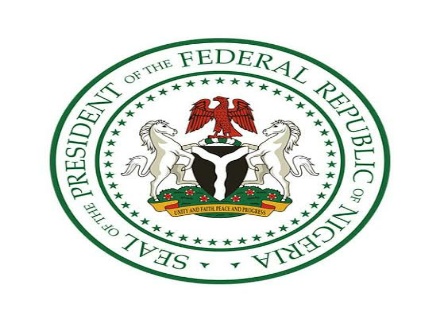Nigerian Presidents and Vice Presidents From 1966 Till Date
Nigeria has had its fair share of political upheavals and transformations over the years. The country, which gained independence from British colonial rule in 1960, has had a history of military coups and transitions to civilian rule. As a result, the country has had several presidents and vice presidents over the years. In this article, we will create a table listing all Nigerian presidents and vice presidents from 1966 till date, with a brief overview of their tenure in office.

FULL LIST OF NIGERIAN PRESIDENTS/HEAD OF STATE & VICE PRESIDENTS (1966 – DATE)
| PRESIDENT/HEAD OF STATE | VICE PRESIDENT | TYPE OF GOVERNMENT | TENURE |
| Aguiyi Ironsi | Babafemi Ogundipe | Military | 16/1/1966- 29/7/1966 |
| Yakubu Gowon | Joseph Edet A. Wey | Military | 29/7/1966- 19/7/1975 |
| Murtala Mohammed | Olusegun Obasanjo | Military | 29/7/1975-13/2/1975 |
| Olusegun Obasanjo | Shehu Musa Yar’dua | Military | 13/2/1976-30/9/1979 |
| Shehu Shagari | Alex Ekwueme | Military | 1/10/1979-31/12/1983 |
| Muhammadu Buhari | Tunde Idiagbon | Military | 31/12/1985-27/8/1985 |
| Ibrahim Babangida | Ebitu Ukiwe | Military | 27/8/1985-17/10/1986 |
| Ibrahim Babangida | Augustu Aikhomu | Military | 17/10/1986-17/11/1993 |
| Sani Abacha | Oladipo Diya | Military | 17/11/1993-9/6/1998 |
| Abdulsalam Abubakar | Mike Akhigbe | Military | 9/6/1998-29/5/1999 |
| Olusegun Obasanjo | Atiku Abubakar | Democratic | 29/5/1999-29/5/2007 |
| UmaruMusa Yar’Adua | Goodluck Jonathan | Democratic | 29/5/2007-19/5/2010 |
| Goodluck Jonathan | Alh. M. Namadi Sambo | Democratic | 19/5/2010-29/5/2015 |
| Muhammadu Buhari | Yemi Osinbajo | Democratic | 29/5/2015-29/5/2023 |
| Bola Ahmed Tinubu | Kashim Shettima | Democratic | 29/5/2023- |
It’s important to note that the Fourth Republic began on May 29, 1999, after several years of military rule. Since then, Nigeria has transitioned to democratic rule, and the country has had several presidential and vice-presidential elections. Each administration has had its unique challenges, ranging from economic issues to security concerns.
Olusegun Obasanjo served as the president of Nigeria from 1999 to 2007. During his tenure, he oversaw several important reforms, including the establishment of the Economic and Financial Crimes Commission (EFCC) and the Independent Corrupt Practices and Other Related Offences Commission (ICPC). He also led several peacekeeping efforts in Africa, including in Liberia and Sierra Leone.
Umaru Musa Yar’Adua succeeded Obasanjo in 2007 but passed away in office on May 5, 2010, due to illness. Goodluck Jonathan, his vice president, then took over and served as president until 2015. During his tenure, Nigeria faced several security challenges, including the rise of Boko Haram, a militant Islamist group operating in the country’s northeast.
Muhammadu Buhari, a former military leader, was elected president in 2015 and re-elected in 2019. His administration has focused on several key areas, including fighting corruption and improving security. However, Nigeria still faces several challenges, including economic issues and ongoing security concerns.
The current Nigerian President is Bola Ahmed Tinubu
CONCLUSION
Nigeria’s political history is complex and has been shaped by several factors, including military coups, democratic transitions, and reform efforts. By understanding this history, we can better comprehend the country’s current state and work towards a more prosperous future.

